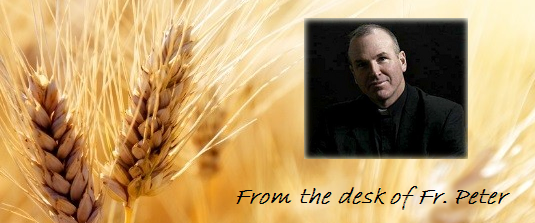May the light of Christ dwell within you!
The readings this weekend highlight the fact of life after death and the reward or punishment merited by our actions during our earthly sojourn. The first reading from the book of Maccabees gives a stirring account of the seven brothers and their mother enduring torture and death rather than violate the laws of God. They believed that by remaining faithful, they would be raised up in the resurrection of the just to receive a reward from God but their persecutors would be condemned. In the second reading, St. Paul exhorts the Thessalonians to truly live the faith despite the challenges of non-believers and evil forces around them. The solid grounds that he uses for his encouragement is the reality of the resurrection to eternal life that they all hope for. In the Gospel, Jesus teaches his hearers something about what the resurrection will be like. The Sadducees doubted a resurrection, but pose a supposition that things in the afterlife will be similar or the same as they are presently in this world but Jesus informs them that such is not the case. He says that there is in fact a resurrection and that those who are worthy to rise to eternal life will be like angels.
I think all of us try to imagine what heaven will be like. I used to ask my parents about it frequently when I was young and they encouraged me to use my imagination. It was fun to think about– it still is! In fact, many of us need to remind ourselves that our efforts to live the Christian life will have a reward beyond our dreams. A thought like that can give us the courage and strength to endure the day’s difficulties and save us from temptations to doubt. As in every age, we are bombarded by worldly influences that draw us to focus on power, wealth, self-satisfaction and material possessions. The Maccabees family were severely pressured to recant their beliefs to gain worldly things but they chose heavenly rewards over anything their torturers could offer. Their faith was such that they could not live with the burden of having denied their God and their conscience. Let us pray that we may always encourage one another in our Catholic faith through word and example of life and death.
God bless you all! +++ Fr Peter

